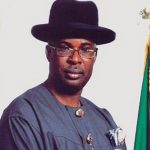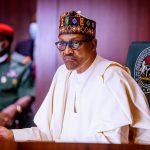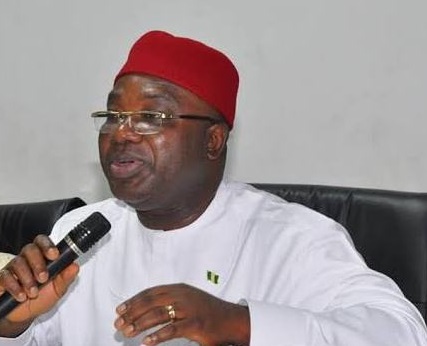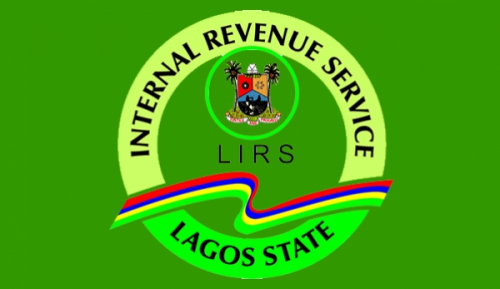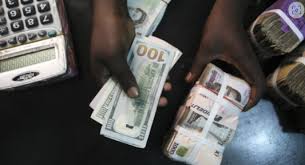OPINION: Getting fuel pricing right

By Usman Abdullahi Koli
(fuel) Deliberately, I prefer to refer to President Muhammadu Buhari as “Minister Buhari” because I believe fully that most Nigerians have forgotten that the president also doubles as the minister of petroleum.
It is obvious that the country we live in and call a mother has no sympathy for us.
This is in no way referring to the country as mentioned above as a land but, rather to the poor leadership style by callous leaders we produced over the last few years.
At this crucial period that we find ourselves; when diverse pandemics, corona virus, hunger, insecurity, corruption among other worrisome issues touch us negatively, the government in the country is also inflicting difficulties on the poor masses.
The saddest part of the present predicament is that this is the government that poor Nigerians had so much faith in, from all administrations we have had since the beginning of Nigeria’s nascent democracy.
Let me only focus on the democratic era from 1999 to date, in order to compare and illustrate the fuel hike issues and its effects as well as other issues inflicting difficulty on poor Nigerians.
In the year 2000, a year after the nation’s democratic rule came into being under President Olusegun Obasanjo, the petrol price was N22 per litre, in June 2002, it was increased to N26 per litre and on June 23, 2003, it was increased to N40 and in 2004, it was later increased to N50 per liter.
President Obasanjo in the same year increased it to N65. In May 2007, Nigerians bought the fuel at N75 per litre, then, the masses protested against the hiked price.
When the late President Musa Yar’adua took over the mantle of leadership, he reduced it to N65 per litre and it remained the first administration to reduce the price of fuel rather than increase it.
The price of fuel remained unchanged until on January 1, 2012 under President Goodluck Jonathan when the Federal Government announced the removal of fuel subsidy which made government increase the price to N141 per litre.
As usual, the public staged protests which made the government to reduce the price to N97 per litre.
And on January 18, 2015, the international market for crude oil crashed and the former Minister of Petroleum, Mrs. Diezani AlisonMadueke announced the reduction of the price to N87 per litre.
After President Buhari was sworn in, the fuel subsidy was removed which brought about an overnight increase of the price to N145 per litre.
Mr. Ibe Kachiku clarified that the increase was meant to balance the differences Nigerians pay to buy oil from the marketers. Surprisingly, rather than Nigerians protesting against this increase as usual, they jubilated because of the intensity of their loyalty to the president.
Accordingly, in March 2020 after collapse in the crude oil businesses at the international market, pump price of Premium Motor Sprit (PMS) reduced from N145 to N125 per litre.
A month later, the Petroleum Products Pricing Regulatory Agency (PPPRA) announced a new pump price band at a reduced rate of between N121 and N123 per litre.
Subsequently on Wednesday, September 2, 2020, a new petrol price was announced by the Pipelines and Product Marketing Company (PPMC), a subsidiary of the NNPC.
The price was increased to N151. 56 per litre; it took effect immediately according to the PPMC.
This development took Nigerians by surprise and triggered reactions. In the same vein, the electric tariff paid by Nigerians was also increased.
For a couple of years back, there have been efforts to compare the agricultural sector with the petroleum sector.
But that has not been achieved because if one compares the hiking of prices in both the sectors which are mostly used by the masses, it would be considered a shadow effort.
We all know the economic hardship ravaging the world because of the pandemic.
Here in my country, we suffer a lot at the hands of hunger, insecurity, redundancy at work and myriad of issues threatening the fabric of our social structure.
These, among others, make things look so unfortunate.
There is no doubt that the Federal Government is taking bold steps to resuscitate the country to develop positively.
Basically, the president has done the needful to ensure success in many angles such as the implementation of the N30,000 minimum wage from the previous N18,000.
Things were thought to be normal after the increment but some issues cropped up and became obstacles; a bowl of local rice is currently sold at N700, a bowl of maize is between N250 and N300.
With 30, 000 as minimum wage, a family breadwinner may end up saving nothing at the end of the month after feeding his family.
Imagine someone going to work from his house, a car owner may spend huge amounts of money on fuel when his minimum wage is just N30,000.
Now, with the situation at hand, electric tariff has also been hiked by the authorities.
What would happen to the common man that can’t afford to pay even the old bill that is now faced with the burden of a higher tariff? Seriously, the situation has become worrisome.
Without doubt, the increment of the pump price will not only touch those working in the system of government but it will also rigorously bring dismay and another set of hardships because by increasing the price of fuel, automatically the price of essential commodities will be hiked, commercial vehicles and other forms of transportation, shop owners, business partners will hike the price of goods and transport fares. Undoubtedly, that will still add pain.
Moreover, the increase will bring a drastic setback to household needs and that will lead to broken homes.
Another negative impact of the fuel hike price is that the crude oil market is likely to remain depressed for the rest of 2020 and some oil-serving companies in Nigeria may eventually go bankrupt.
It is even more disturbing that oil marketers have warned Nigerians that there is likely to be a new price hike for fuel.
This is not something good to hear because even now, the lives of many will be negatively affected.
The Federal Government and all those involved in taking such decisions should reconsider and think of the poor as well as those now proudly called the poor of the poorest.
I’m confident that the increase may have its good impact as we hope everything the government does is in the interest of its people. But at this critical stage, it is important to state that this is not the right time to take such decisions as a hike in price of fuel and other essential amenities.
No matter what, the people’s reactions have indicated their discontent.
However, the confidence reposed in this administration is still intact but, only quicker response to such issues will bring succor and solace to the people.
My plea goes to the Federal Government to reconsider these decisions and wait for the right moment if the increase is indeed necessary.
The people are still waiting for the day when the electioneering promises of this administration will be actualised and it should be before the end of Buhari’s tenure.
To the honorables at the National Assembly, please remember your responsibility as representatives of the people.
On your watch these inconvenient decisions were taken. Remember the hardship being inflicted on your constituents and do the needful.
READ ALSO: FG gives update on reopening of schools
Let the people see your courage. The Nigeria Labour Congress has threatened to embark on a strike on the ground that the Buhari administration has betrayed the trust of Nigerians.
In Osogbo, there was protest against the hike in fuel price and electricity tariff. The actions taken may seem good, but protest is not the way out for now.
The president always claims not to be aware of what is happening in the country.
Recently he said he was shocked at the hike in food price; before now, he said he was shocked at the situation of the country’s insecurity. If the president is serious, we want to see proactive measures being taken.
To all other stakeholders who in one way or anotherother have vital roles to play, please consider the matter as an urgent one.
Remember if it is you there today, tomorrow, it will be the turn of others.


